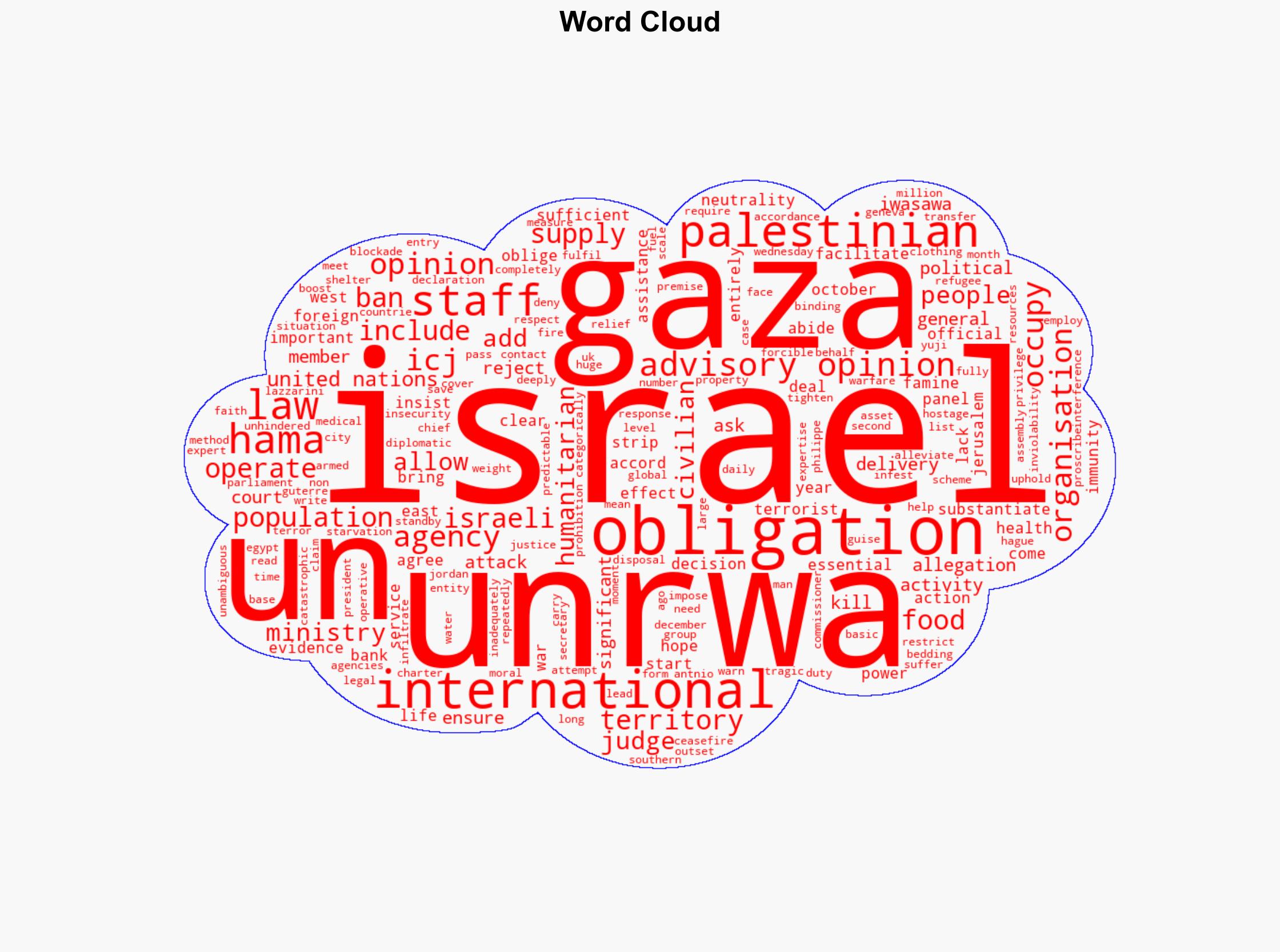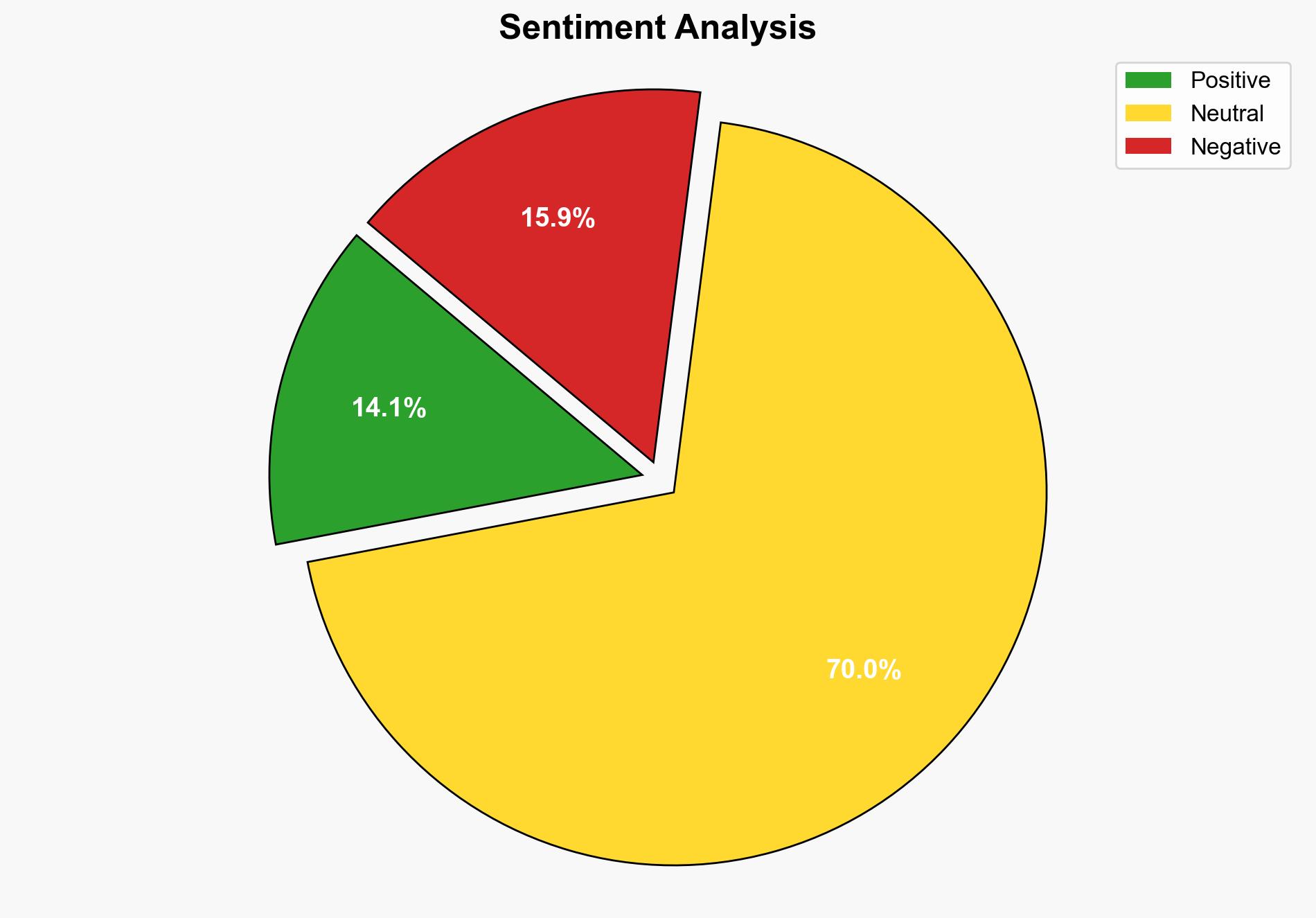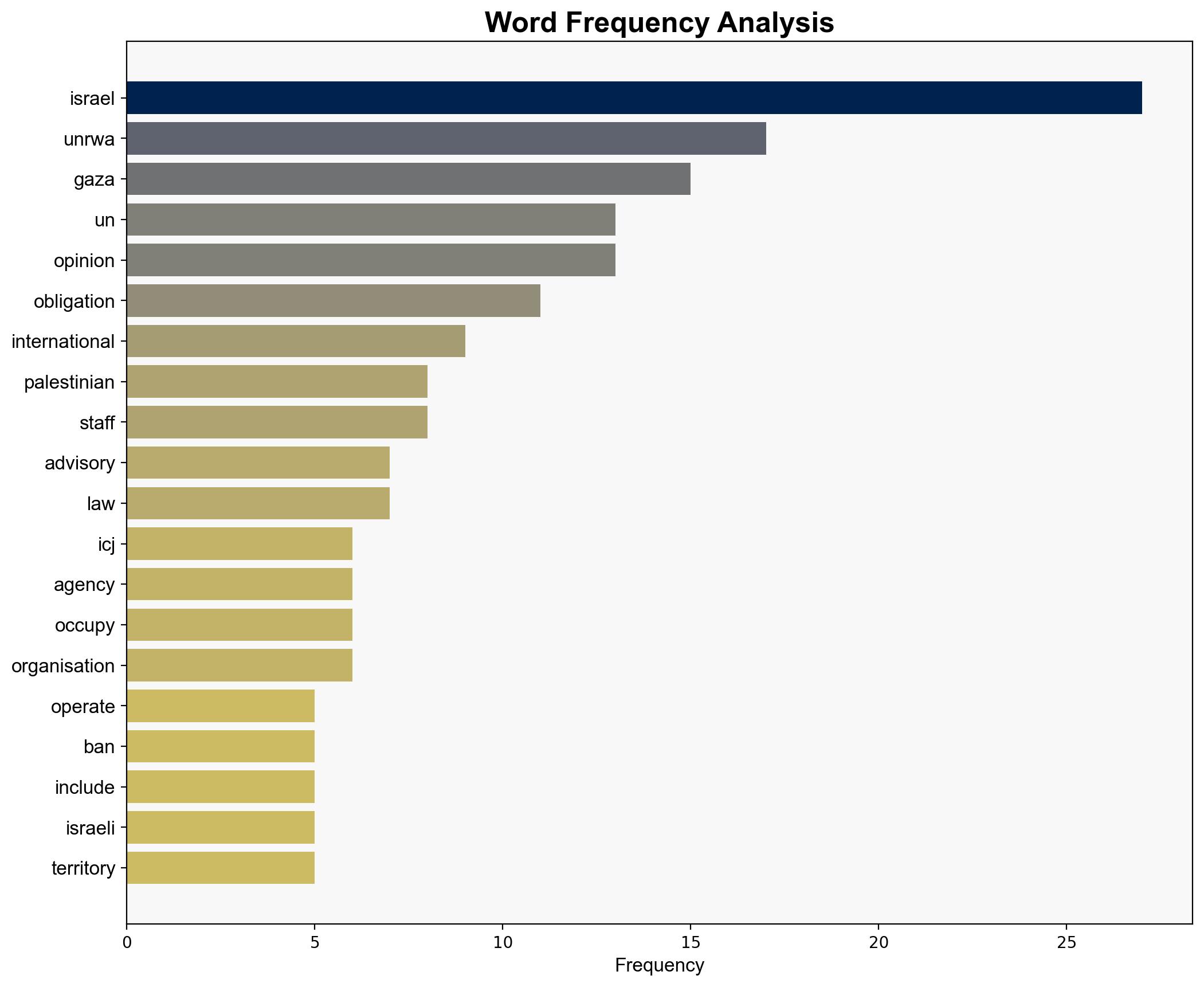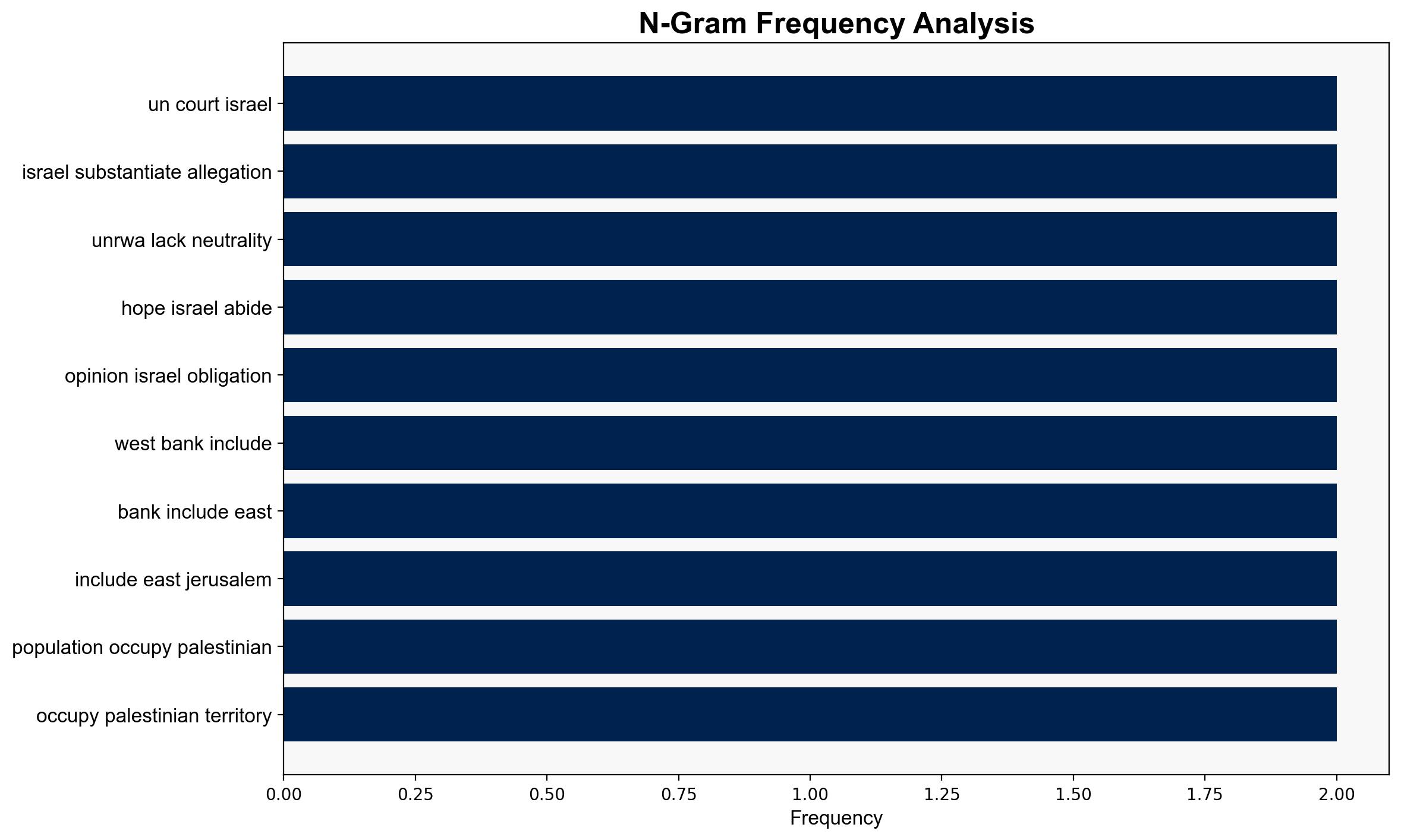ICJ to give opinion on Israel’s UN and Palestinian aid obligations – BBC News
Published on: 2025-10-22
Intelligence Report: ICJ to give opinion on Israel’s UN and Palestinian aid obligations – BBC News
1. BLUF (Bottom Line Up Front)
The International Court of Justice (ICJ) has issued an advisory opinion regarding Israel’s obligations to facilitate humanitarian aid in Gaza, which Israel has rejected. The most supported hypothesis is that Israel will continue to resist ICJ directives, citing security concerns and political motivations. Confidence level: Moderate. Recommended action: Engage in diplomatic efforts to mediate between Israel and international bodies to ensure humanitarian aid reaches Gaza while addressing Israel’s security concerns.
2. Competing Hypotheses
1. Israel will comply with the ICJ’s advisory opinion and facilitate humanitarian aid to Gaza, potentially easing tensions and improving international relations.
2. Israel will reject the ICJ’s opinion, maintaining its current policies due to security concerns and political motivations, leading to continued tension with international bodies.
Using Analysis of Competing Hypotheses (ACH), the second hypothesis is better supported by historical precedent and Israel’s immediate rejection of the ICJ’s opinion, citing political motivations and security concerns.
3. Key Assumptions and Red Flags
– Assumptions: Israel’s rejection is primarily driven by security concerns and political motivations. The ICJ’s opinion is non-binding, limiting its influence.
– Red Flags: Israel’s categorical rejection of the ICJ opinion may indicate underlying political strategies. The potential bias in UN agencies, as alleged by Israel, could affect neutrality perceptions.
– Missing Data: Detailed insights into Israel’s internal decision-making processes and the impact of international pressure on its policies.
4. Implications and Strategic Risks
– Continued rejection of international opinions may isolate Israel diplomatically, affecting its global standing.
– Escalation risks include increased tensions in the region, potentially leading to humanitarian crises.
– Economic implications could arise from potential sanctions or reduced cooperation with international bodies.
– Psychological impacts on the civilian population in Gaza due to prolonged humanitarian challenges.
5. Recommendations and Outlook
- Engage in diplomatic dialogue to address both humanitarian needs and Israel’s security concerns.
- Encourage transparency and accountability within UN agencies to address neutrality concerns.
- Scenario Projections:
- Best: Israel complies with ICJ opinion, easing regional tensions.
- Worst: Continued rejection leads to international sanctions and regional instability.
- Most Likely: Israel maintains current policies, with ongoing diplomatic negotiations.
6. Key Individuals and Entities
– Yuji Iwasawa (ICJ President)
– António Guterres (UN Secretary-General)
– Philippe Lazzarini (UNRWA Commissioner-General)
7. Thematic Tags
national security threats, regional focus, humanitarian aid, international law, diplomatic relations





